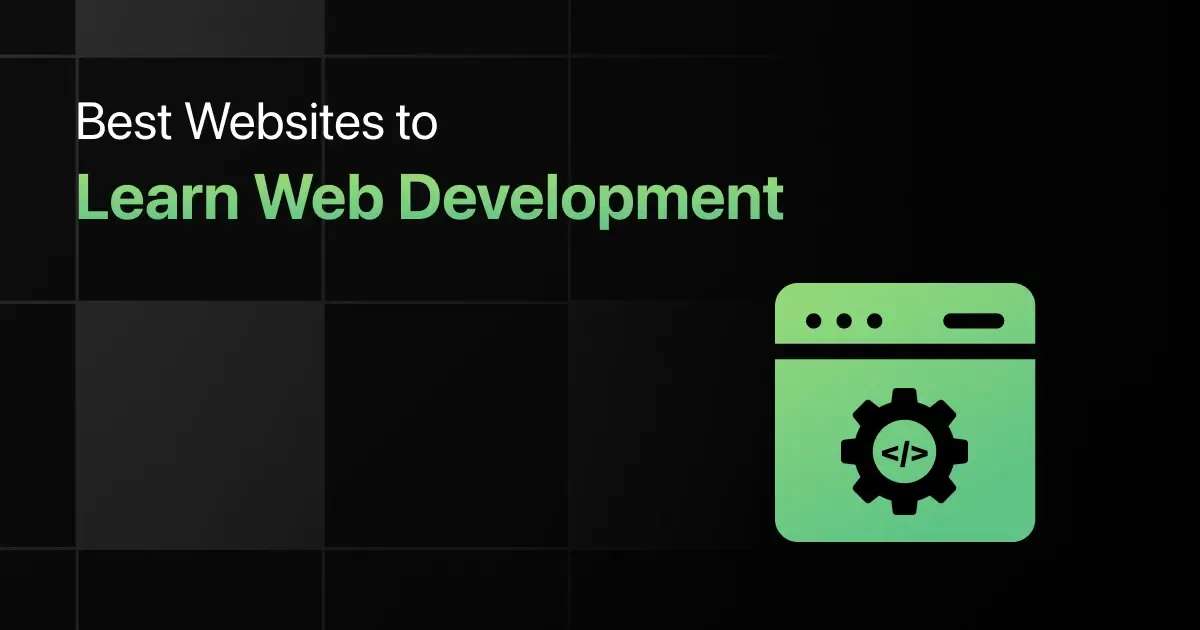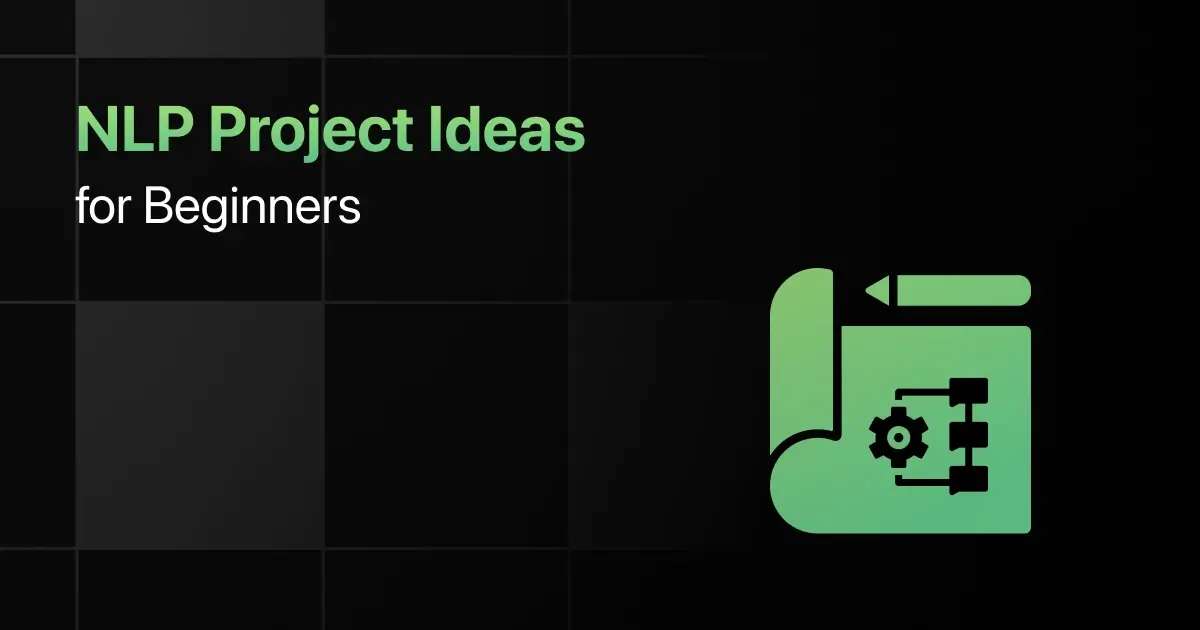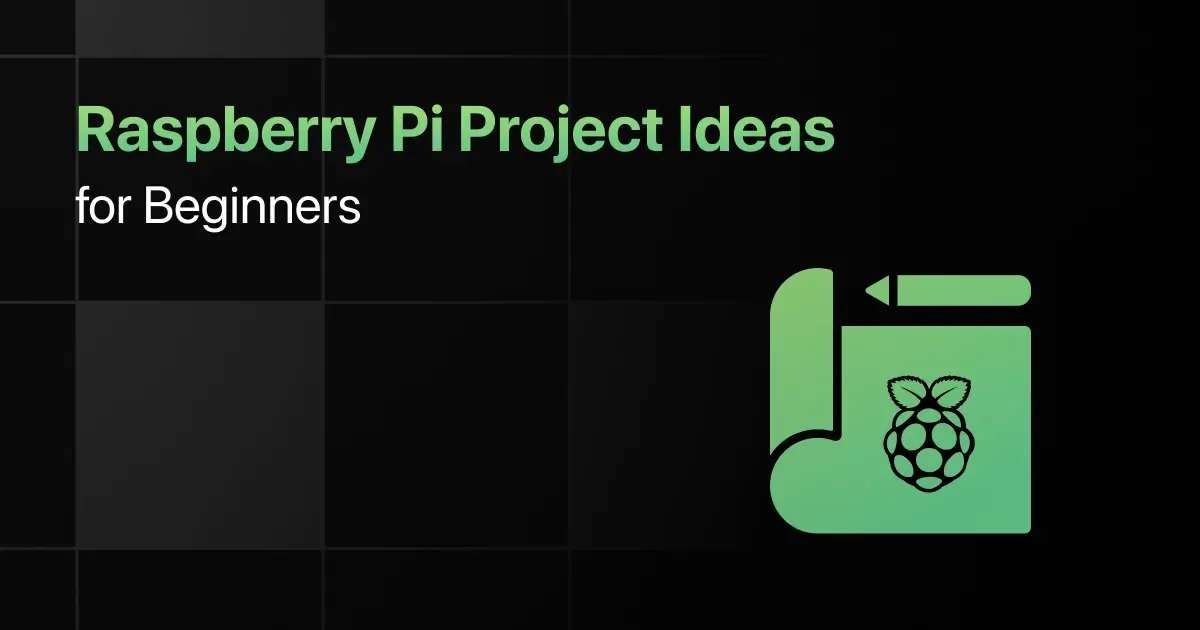Best Websites to Learn Web Development

Interested in building websites from scratch but worried about the cost of learning?
Discover the best websites to learn Web Development for free, where you can gain the skills to create everything from simple web pages to complex applications without spending a rupee.
10 Best Websites for Web Development – Overview
Here’s an overview of the top 10 websites to learn Web Development:
| S.No. | Website Name | Course Duration | Pricing | Certification | Website Link |
|---|---|---|---|---|---|
| 1 | GUVI | 3 to 5 months | Paid | Yes | Visit Now |
| 2 | FreeCodeCamp | 21 hours | Free | Yes | Visit Now |
| 3 | The Odin Project | Self-paced | Free | No | Visit Now |
| 4 | MDN Web Docs | Self-paced | Free | No | Visit Now |
| 5 | Coursera | 40 hours | Freemium | Yes | Visit Now |
| 6 | Codecademy | Varied | Freemium | Yes | Visit Now |
| 7 | W3Schools | Self-paced | Free | No | Visit Now |
| 8 | Microsoft Learn | Self-paced | Free | No | Visit Now |
| 9 | Udemy | 62 hours | Paid | Yes | Visit Now |
| 10 | Team Treehouse | Self-paced | Paid | Yes | Visit Now |
Best Websites to Learn Web Development for Beginners
Below is the list of best websites to learn Web Development for beginners:
1. GUVI
GUVI’s Full Stack Development Bootcamp is an intensive program designed to equip learners with the skills required for a career in full-stack web development. This course, incubated by IIT-M and IIM-A, offers 100% job placement support and is taught by mentors from top global product companies. The program is suitable for graduates and working professionals and is available in English, Tamil, Kannada, and Hindi.
The curriculum covers front-end and back-end development, data structures, scalability, and includes building a full-stack developer portfolio. Technologies covered include HTML, CSS, JavaScript, React, Node.js, MongoDB, and more.
The course duration is 3 to 5 months (weekday or weekend options), and it’s conducted online. The program promises practical hands-on workshops, one-on-one sessions with industry mentors, and personalized feedback on assignments.
Course Diversity: Covers front-end and back-end development, data structures, and scalability.
Learning Style: Practical hands-on workshops and one-on-one mentorship sessions.
Pricing Structure: INR 89,999 with EMI options available.
Platform Usability: Online format accessible for a diverse audience.
Certifications Offered: Certification upon completion.
Language Options: Available in English, Tamil, Kannada, and Hindi.
Instructor Expertise: Mentors from top global product companies and IIT-M, IIM-A incubated.
Duration of Courses: 3 to 5 months, depending on the chosen schedule.
Community and Support: Dedicated support and community interaction.
2. freeCodeCamp
The “Frontend Web Developer 21-Hour Bootcamp” on freeCodeCamp is a comprehensive video course designed to equip learners with the essential skills needed for a career in frontend web development.
The bootcamp covers JavaScript, HTML, and CSS, providing a solid foundation in these key technologies. It includes various sections, such as JavaScript challenges, functions, loops, built-in methods, HTML crash course, CSS crash course, responsive web design, and Flexbox. Participants will also create projects, gaining hands-on experience.
Course Diversity: Covers JavaScript, HTML, CSS, responsive design, and Flexbox.
Learning Style: Video-based learning with practical coding exercises and projects.
Pricing Structure: Completely free.
Platform Usability: Accessible on YouTube, easy to follow along.
Certifications Offered: Does not specify certifications for this course.
Language Options: Content available in English.
Instructor Expertise: Taught by Zach Gollwitzer, an experienced software engineer and fullstack developer.
Duration of Courses: 21 hours of comprehensive content.
Community and Support: Access to freeCodeCamp’s vast community of learners and developers.
3. The Odin Project
The Odin Project’s “Foundations Course” is a comprehensive and hands-on introduction to the essential tools and skills needed to build real, working websites.
It covers a wide range of topics, including web development basics, text editors, command line basics, Git, HTML, CSS, JavaScript, and DOM manipulation. The course emphasizes practical learning, with projects like building a recipe website, a landing page, and a rock-paper-scissors game. It also teaches clean code practices and problem-solving skills.
Course Diversity: Covers web development basics, HTML, CSS, JavaScript, and more.
Learning Style: Hands-on, project-based learning.
Pricing Structure: Free access to the course.
Platform Usability: User-friendly and community-driven.
Certifications Offered: Does not specify certifications.
Language Options: Content primarily in English.
Instructor Expertise: Course developed by experienced web developers.
Duration of Courses: Self-paced, with a comprehensive curriculum.
Community and Support: Strong community support and resources.
4. MDN Web Docs
The Mozilla Developer Network (MDN) offers a comprehensive “Learn web development” section, designed to guide complete beginners through the essentials of coding websites.
It covers a wide range of topics, including HTML for structuring web content, CSS for styling, JavaScript for dynamic client-side scripting, web forms, accessibility, web performance, and more.
The aim is to provide enough detail to make learners comfortable with the topics and prepare them for more advanced resources. The section includes practical introductions, detailed modules on HTML, CSS, JavaScript, and other essential web technologies, making it a valuable resource for anyone looking to start or enhance their web development journey.
Course Diversity: Covers a broad range of web development topics, from HTML and CSS to JavaScript and accessibility.
Learning Style: In-depth articles, practical introductions, and interactive examples.
Pricing Structure: Free access to all content.
Platform Usability: Well-organized and easy to navigate.
Certifications Offered: Does not offer certifications.
Language Options: Content available in English, with translations in other languages.
Instructor Expertise: Content developed by web development experts.
Duration of Courses: Self-paced, with a comprehensive range of topics.
Community and Support: Does not specify community or support options.
5. Coursera
The “HTML, CSS, and Javascript for Web Developers” course on Coursera, offered by Johns Hopkins University and taught by Yaakov Chaikin, is a comprehensive program designed for individuals interested in web development.
It covers the fundamental technologies of web development, including HTML for structuring web pages, CSS for styling, and JavaScript for adding interactivity. The course is structured into five modules, each delving into different aspects of web development, from basic HTML5 to advanced JavaScript techniques. It includes practical projects, such as building a static restaurant site and developing web applications using JavaScript.
The course is approximately 40 hours long and is designed to be completed over three weeks at 13 hours per week.
Course Diversity: Covers HTML5, CSS3, and JavaScript for web development.
Learning Style: Structured learning with practical projects and quizzes.
Pricing Structure: Accessible through Coursera subscription, financial aid available.
Platform Usability: User-friendly platform with flexible learning schedule.
Certifications Offered: Shareable certificate upon completion.
Language Options: Content available in English with subtitles in multiple languages.
Instructor Expertise: Taught by Yaakov Chaikin, an experienced instructor from Johns Hopkins University.
Duration of Courses: Approximately 40 hours, designed to be completed over three weeks.
Community and Support: Access to Coursera’s community of learners and developers.
6. Codecademy
Codecademy’s Web Development catalog offers a comprehensive range of courses and paths designed to teach the skills necessary for building and maintaining websites and web applications.
Learners can start with foundational courses in HTML and CSS, which are essential for creating the structure and style of web pages. As they progress, they can delve into more advanced topics like JavaScript for adding interactivity, React for building user interfaces, and back-end technologies like Node.js.
The catalog features a mix of free and paid courses, with options for career paths like Full-Stack Engineer, Front-End Engineer, and Back-End Engineer. Each path includes a series of courses and projects that build upon each other, providing a comprehensive learning experience.
Course Diversity: Covers HTML, CSS, JavaScript, React, and full-stack development.
Learning Style: Interactive, project-based learning with hands-on coding.
Pricing Structure: Mix of free courses and paid subscription plans.
Platform Usability: User-friendly and engaging, suitable for all skill levels.
Certifications Offered: Certificates of completion for paid plans.
Language Options: Courses primarily in English.
Instructor Expertise: Developed by experienced web developers and educators.
Duration of Courses: Varies, with options for short courses and comprehensive career paths.
Community and Support: Access to Codecademy’s community and learning resources.
7. W3Schools
The “What is?” section on W3Schools is an educational resource designed to provide clear and concise explanations of key web development concepts and technologies.
This section serves as an introductory guide to various aspects of web programming, covering topics such as HTML, CSS, JavaScript, SQL, Python, and more. It is structured to help beginners understand the basics of web development and programming languages. Each topic is explained with simple definitions and examples, making complex concepts accessible to all learners.
Course Diversity: Covers a wide range of web development topics and programming languages.
Learning Style: Text-based tutorials with simple definitions and examples.
Pricing Structure: Free access to all content.
Platform Usability: User-friendly and easy to navigate.
Certifications Offered: Does not offer certifications.
Language Options: Content primarily in English.
Instructor Expertise: Content developed by web development experts.
Duration of Courses: Self-paced, time varies depending on the learner’s schedule.
Community and Support: Does not specify community or support options.
8. Microsoft Learn
The “Web Development 101” learning path on Microsoft Learn is a beginner-friendly course designed to introduce learners to the basics of web development.
This path includes modules on programming fundamentals, web accessibility, JavaScript variables, data types, functions, decision-making, arrays, loops, and using GitHub Copilot with JavaScript. It’s structured to provide a foundational understanding of web development, including the use of programming languages and tools, and web accessibility.
Course Diversity: Covers programming fundamentals, JavaScript, web accessibility, and more.
Learning Style: Structured learning with modules and interactive exercises.
Pricing Structure: Free access to the course.
Platform Usability: User-friendly and easy to navigate.
Certifications Offered: Does not specify certifications for this course.
Language Options: Content available in English.
Instructor Expertise: Developed by Microsoft experts.
Duration of Courses: Self-paced, with a structured learning path.
Community and Support: Access to Microsoft Learn’s community and resources.
9. Udemy
“The Complete Web Development Bootcamp” on Udemy, created by Dr. Angela Yu, is a comprehensive and highly-rated course designed to transform learners into full-stack web developers.
This extensive course covers a wide array of technologies and tools used in modern web development, including HTML, CSS, JavaScript, Node, React, PostgreSQL, and even Web3 and DApps. With a focus on practical learning, the course guides students through building 16 web development projects, making them ready for junior developer jobs.
The course includes over 62 hours of HD video tutorials and is structured to teach both front-end and back-end development, professional best practices, and the ability to build fully-fledged websites and web apps.
Course Diversity: Covers a wide range of web development topics, including HTML, CSS, JavaScript, React, Node, and more.
Learning Style: Video-based learning with real-world projects and coding exercises.
Pricing Structure: Individually priced, often with discounts available.
Platform Usability: User-friendly interface with easy access to course materials.
Certifications Offered: Certificate of completion provided.
Language Options: Content available in English, with subtitles in multiple languages.
Instructor Expertise: Taught by Dr. Angela Yu, an experienced developer and lead instructor.
Duration of Courses: Over 62 hours of HD video tutorials.
Community and Support: Udemy platform offers Q&A sections and community forums.
10. Team Treehouse
The “Front End Web Development” track on Team Treehouse is a comprehensive learning path designed for individuals aspiring to become front-end web developers.
This track covers a wide range of essential topics, including HTML, CSS, JavaScript, and responsive web design. It starts with the basics of HTML and CSS, teaching learners how to structure and style web pages.
As the track progresses, it delves into more advanced areas like JavaScript programming, creating interactive web experiences, and developing responsive designs that work on various devices. The track includes numerous courses and workshops, each focusing on different aspects of front-end development.
Course Diversity: Covers HTML, CSS, JavaScript, and responsive web design.
Learning Style: Structured learning with a mix of courses and workshops.
Pricing Structure: Subscription-based access to all courses.
Platform Usability: User-friendly interface with easy navigation and progress tracking.
Certifications Offered: Does not specify certifications for this track.
Language Options: Content primarily in English.
Instructor Expertise: Courses taught by experienced web developers and educators.
Duration of Courses: Self-paced, with a comprehensive curriculum.
Community and Support: Access to Treehouse’s community and learning resources.
Final Words
These websites offer a comprehensive learning experience for aspiring web developers, covering everything from basic HTML to advanced programming concepts.
Keep checking this article as we will keep updating this space as more websites make space in the heart and study schedule of students preparing for placements and competitive exams.
Explore More Web Development Resources
Explore More Websites
- Python
- Java
- Coding
- C++
- C Programming
- SQL
- JavaScript
- Data Science
- HTML & CSS
- Data Structures and Algorithms
- AI & Machine Learning
- Ethical Hacking
- Android Development
- React JS
- Game Development
- Competitive Programming
- Digital Marketing
- Tableau
- DBMS
- R Programming
- PHP
- Cyber Security
- Excel
- Node JS
- Data Analytics
- Bootstrap
- Cloud Computing
- Operating System
- Angular
- RPA
FAQs
The best websites for learning web development are:
- GUVI
- freeCodeCamp
- The Odin Project
- MDN Web Docs
- Coursera
- Codecademy
MDN Web Docs, freeCodeCamp, The Odin Project, W3Schools, and Microsoft Learn are some free web development learning websites along with certifications.
You should choose a website for learning Web Development because they offer flexibility and have a variety of learning resources. They cater to different learning styles with interactive tutorials, video lectures, and hands-on exercises.
You can choose the right website for learning Web Development by considering factors like course content quality, learning style compatibility (videos, interactive exercises), instructor expertise, community support, and pricing.
Yes, beginners can effectively learn Web Development through websites. Many platforms offer beginner-friendly courses that start with basics and gradually progress to more complex topics.
Yes, some websites like GUVI, Coursera, Udemy, and MDN Web Docs provide Web Development learning content in multiple languages and subtitles.
Related Posts



Golang Interview Questions
Are you preparing for your first Golang interview and wondering what questions you might face? Understanding the key Golang interview questions …
Warning: Undefined variable $post_id in /var/www/wordpress/wp-content/themes/placementpreparation/template-parts/popup-zenlite.php on line 1050





